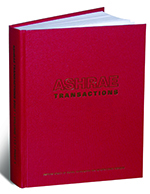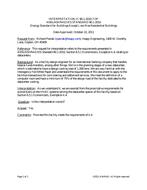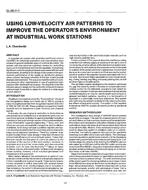The utilization of Natural Ventilation (NV) can deteriorate indoor air quality (IAQ) when in close proximity to roadways, although the intention isoften to reduce energy consumption. In this study, we employed a CFD-based air quality model to quantify the impact of traffic-related air pollutants (i.e.,fine particles) on the IAQ of a naturally ventilated building in a roadside environment. Our study found that the building envelope restricts dispersionand dilution of fine particles. The indoor concentration in the baseline condition located 10m away from the roadway is roughly 16% greater than that atthe edge of the roadway. The indoor flow circulation creates a well-mixed zone with nearly constant fine particle concentration. In addition, the indoorconcentration strongly depends on the distance between the roadway and the building, NV floor height, ambient wind condition, and window openningsize. A break-even point is observed at D’=2 (normalized distance from the roadway by the width of the road). The indoor particle concentration isgreater than that at the highway where D’ less than 2, and vice versa. For new building planning, the distance from the roadway and the ambient wind conditionneed to be considered at the early design stage whereas the the window openings size, NV floor height, and the placement of fresh air intakes areimportant to the indoor air quality of existing buildings adjacent to roadways.
Citation: 2017 Winter Conference, Las Vegas, NV, Conference Papers
Product Details
- Published:
- 2017
- Number of Pages:
- 8
- Units of Measure:
- Dual
- File Size:
- 1 file , 980 KB
- Product Code(s):
- D-LV-17-C057


